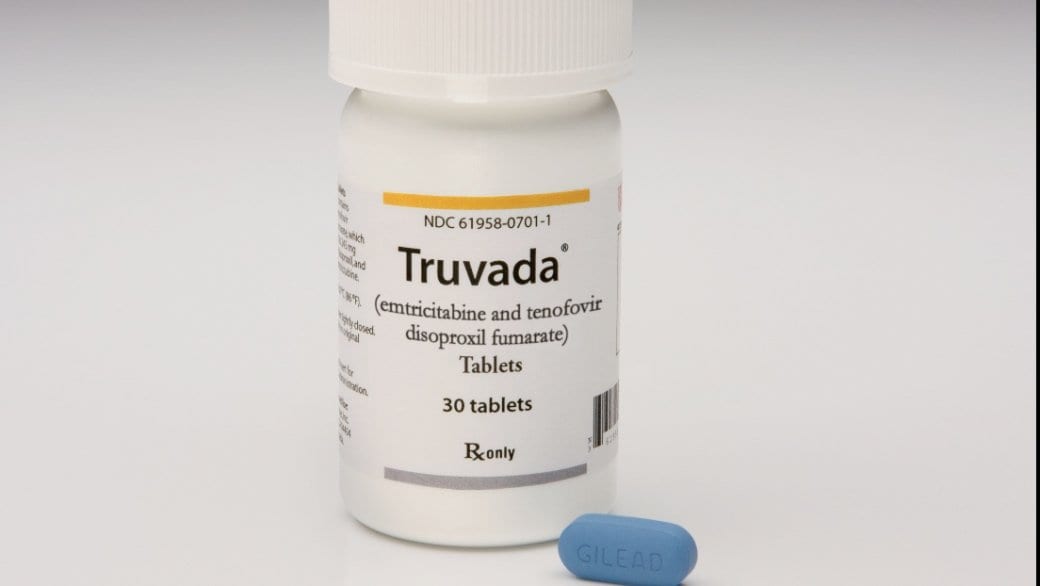With an anticlimactic shuffle of paperwork, Health Canada quietly added a paragraph to the online documentation for Truvada on Feb 28, 2016, opening the door to a new era of HIV prevention in Canada.
It’s a moment that doctors, scientists and activists concerned with gay men’s health have been anxiously awaiting for years.
But there’s no call to get too excited yet. Experts say there’s a heaping pile of work to do before any real change happens. In fact, in the days following Health Canada’s announcement, almost nothing about Canadians’ access to Truvada will change at all.
First, the experts say, we have to grapple with the thorny funding and access problems that already keep the drug out of reach for most of the Canadians who need it most.
Truvada, a combination of the antiviral drugs tenofovir and emtricitabine, got its start treating HIV, and only later was found to also prevent HIV infection. Five years of testing around the world have shown Truvada to be not only as effective as condoms, but also as safe as aspirin. Since it was approved in 2012 in the United States for pre-exposure prophylaxis (PrEP), Truvada has exploded in popularity, especially in gay centres like San Francisco and New York.
(PrEP is not only intended for gay and bisexual men, but men who have sex with men have been by far the most common early adopters. In Canada, HIV infection rates among gay men have stalled while heterosexual infection continues to decline.)
In Canada, however, access to PrEP has remained almost nonexistent. While some doctors have been willing to prescribe Truvada “off-label” as PrEP, the drug’s price tag can be as high as $1,000 a month, and insurance companies have proved reluctant to cover the costs. Canadian men desperate for PrEP have gone as far as ordering generics from the United States and skirting a legal grey area to bring them across the border, or relying on underground supplies of second-hand or smuggled drugs.
Health Canada’s new approval does nothing about the exorbitant cost of Truvada for PrEP, nor does it force insurance companies or provincial pharmacare plans to pick up the tab. For the moment, Truvada is just as out of reach as ever.
But there is good news, says Dr Joss de Wet, a doctor at the Spectrum sexual health clinic in Vancouver. He was already prescribing Truvada as PrEP long before Health Canada gave the green light, and thinks the agency’s decision will persuade other doctors to do the same.
“It won’t change what we do,” he says. “It will definitely change people’s access. There are early adopters, middle adopters and late adopters. We were early adopters, but some healthcare providers want more evidence and more approval before they do something. This will give them great empowerment.”
More importantly, de Wet says, the Health Canada decision allows healthcare experts to start pressuring provincial governments to include Truvada on pharmacare formularies, meaning the provincial government would pick up some of the cost. At the moment, only Quebec’s drug program covers Truvada for both HIV treatment and prevention. In BC, Truvada is not covered by the province, but is given out for free along with other antiretrovirals to anyone who is already infected. Since each new HIV infection is estimated to cost the Canadian economy $1.3 million, de Wet says doctors have a strong case to argue for PrEP as a prudent investment.
In the United States, Truvada’s spread is assisted by generous patient assistance programs and partnerships between the drug’s maker Gilead Pharmaceuticals and local clinics. A Gilead representative told Daily Xtra the company is “actively working with payers across Canada” to make Truvada more accessible,” but did not provide any specifics.
Even if Truvada were affordable, doctors still need to prescribe it. Some Canadian doctors have been reluctant to prescribe PrEP for fear of promoting unsafe sex or giving patients a false sense of confidence. Even Health Canada cautiously announced Truvada is “intended for use by high risk individuals — such as those whose sexual partner is HIV-positive — in combination with safer sex practices, including condom use.” This language seems to suggest that doctors should not prescribe Truvada unless a patient will also use condoms.
Dr Julio Montaner, a venerable Canadian HIV researcher and the director of the BC Centre for Excellence in HIV and AIDS, laughs off the idea that doctors would read the guidelines so literally.
“If you are using condoms, if you know the status of your partner, if your partner’s HIV is suppressed, you don’t need Truvada,” he says. “We are all very careful to say that PrEP should be part of a prevention package, but if you avail yourself of optimal prevention, you don’t need PrEP.”
He thinks doctors should read the guidelines as encouragement to combine PrEP with condom use and treatment as prevention to treat whole communities. But doctors should not hesitate to consider Truvada if gay men have multiple partners or don’t use condoms, Montaner says.
Finally, even if doctors are willing to prescribe, Truvada advocates have to convince men who could benefit from PrEP to sign on. Worries about Truvada’s side effects and safety continue to circulate, especially after the first confirmed case of a man on a daily PrEP regimen contracting HIV surfaced only a few days before the Health Canada announcement.
Dr Montaner says at this point, however, the evidence for Truvada is beyond reasonable doubt. “This is the reason we gather evidence and do clinical trials,” he says. ”You can worry all you want, but once the evidence is in, you cannot deny it. This is based on science, and the science says that Truvada taken as prophylaxis is effective, it’s safe, and complications are extremely rare. It doesn’t make sense to worry about the same issues after as you did before the information was available.”


 Why you can trust Xtra
Why you can trust Xtra


